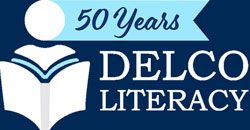According to a recent World Education blog post, “Perhaps now more than ever, adult educators are paying attention to the impact that personal and community trauma has on adult learners’ ability to learn and pursue their goals.”

COVID-19 was a collective trauma we all experienced in the last two years—a trauma felt even more acutely by adult literacy students. As the blog post states, “Those most affected by the devastation of the pandemic are disproportionately people of color and immigrants, especially those who are women. When these adults are our students, using trauma-informed practices will increase their opportunities to learn and pursue their education and career goals. Using trauma-informed practices is an integral part of enacting our values of diversity, equity, and inclusion.”
Case Manager Wazhma Pal helps DCLC students overcome barriers to learning, which sometimes involves guiding them to resources that can address the traumas they have experienced.
“Attending classes online, managing work and family at the same time can be a real challenge for adult students,” says Wazhma. “Sometimes they struggle to find housing, which is definitely traumatic. For immigrant students, there is the trauma of adjusting to a new country with minimal to no language skills. As the DCLC case manager, I help students connect with organizations that provide services they need. Acknowledging the difficulties in a student’s life also helps them take steps to get help and recognize their own strength.”
With the help of DCLC’s Case Manager Wazhma Pal, DCLC provides literacy instruction that welcomes adult students as individuals who bring their own experiences and challenges to their studies.
You also may be interested in these stories from February/March 2022 DCLC News & Notes.
—DCLC Profile: DaVeda Graham Brings Focus on Community Learning to DCLC Board
—DCLC Offers Free Employment Services and Digital Literacy to Community Members
